Finding and Fixing Broken Links and How they Affect SEO
How do you find and fix broken links on a website?
Quick Answer: To find broken links on your website, you can use Google Search Console’s Coverage Report, or website audit tools like Screaming Frog and SEMRush. To fix these broken links, you have several options, including revising incorrect URLS, redirecting URLs that have been moved, and removing links that are no longer relevant.
Overview
A well-optimized website will increase its number of webpages over time – it’s inevitable. Content, whether they are blog posts, product pages, etc., will continue to pile on. Oftentimes, content that was published a few years ago is forgotten and some of the links on these pages have either moved to a different page or are non-existent anymore. These are called broken links.
Cleaning up these broken links are part of an SEOs daily task. They might be small in size but in SEO, every bit of optimization matters, and yes, that includes going back to a blog post published 5 years ago just to replace a link. Seems like a pretty easy task but they can also be overwhelming at times because they could pile up really quickly. Read on to find out how these broken links affect SEO and how you should deal with them.
What are Broken Links?
Broken links are hyperlinks on a webpage to another webpage that is inaccessible anymore due to various reasons. The most common reason is the page that is linked to does not exist anymore (error 404). Other reasons include misspelling in the URL, the website owner restricted access to the page, or the website is having server problems. Broken links can also either be internal links or outbound links.
Do Broken Links Affect SEO?
Some SEOs and website owners tend to get worried when they find broken links on their website fearing that it would have negative effects on their rankings. Will a few broken links result in a ranking drop? Probably not. The fact is broken links may affect your SEO but not directly and not as bad as you think it would.
Google understands that broken links are natural occurrences on the web. Broken links affect SEO indirectly because it affects user experience which is a ranking factor. These links could be quite annoying causing a poor experience. So if you fix broken links, you shouldn’t be expecting a traffic uplift or ranking increase but more importantly, you are making sure that the users are having a smooth experience while they surf around your website.
Another way broken links affect SEO is the wasted link juice that could be going elsewhere. Instead of the link juice flowing to different pages in your website, the link flow is cut off and is wasted. For outbound links, broken links may send negative signals to Google regarding your website’s authority. But then again, these won’t greatly impact your website rankings or traffic but it is still worth the time to optimize.
How to Find Broken Links?
Here are a few methods on how to find broken links on your website:
Google Search Console
In Google Search Console, you’ll be able to find broken links Google was able to discover while crawling your website through the Coverage Report. This report will only show you internal broken links but it should still be your first priority because internal links can be more important than outbound links.
Go to “Excluded” section of the Coverage Report for the following errors:
- Blocked due to unauthorized requests
- Not found (404)
- Soft 404
- Blocked due to access forbidden (403)
- Blocked due to other 4xx issues
Clicking one of these errors will show you a list of URLs that Google discovered.
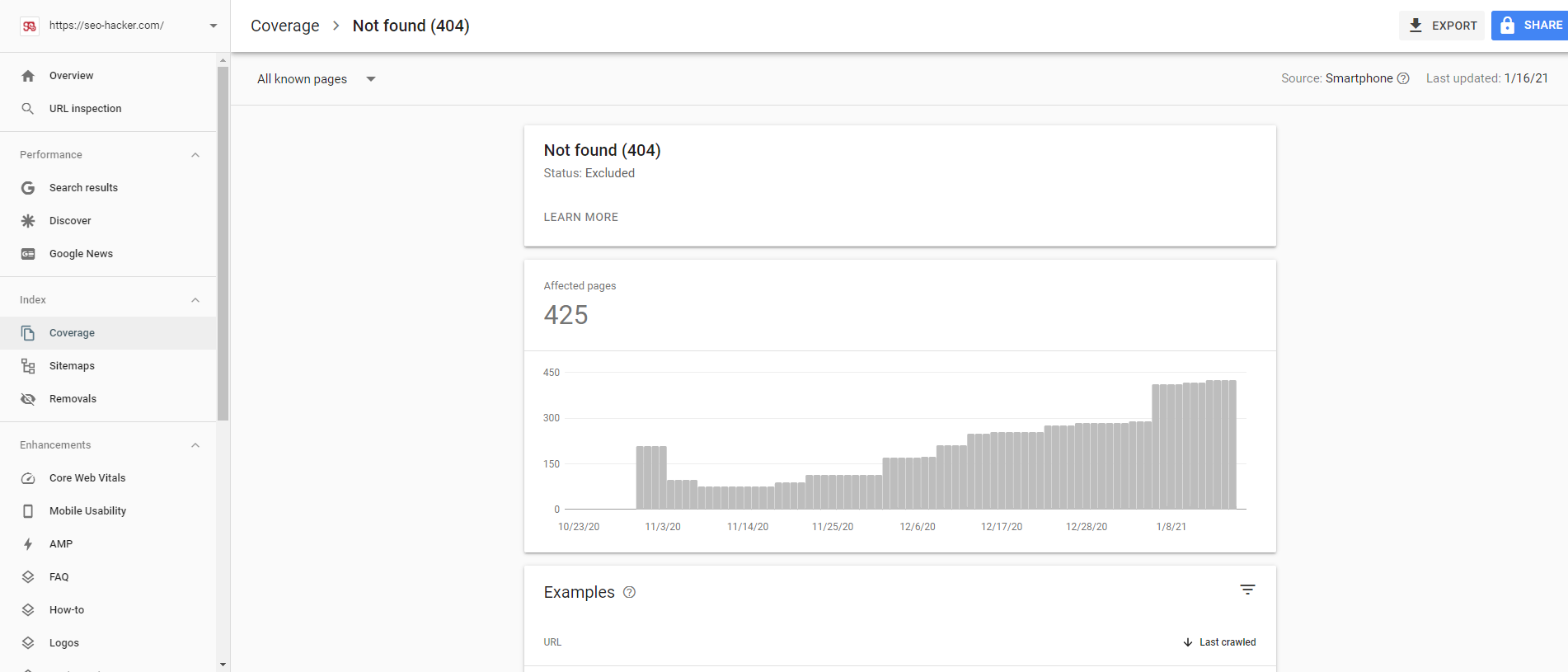
And if you click one URL and click on “Inspect URL”, you will see more information about that specific URL. The important part here is the “Referring Page” as it will show you where the broken link is coming from.
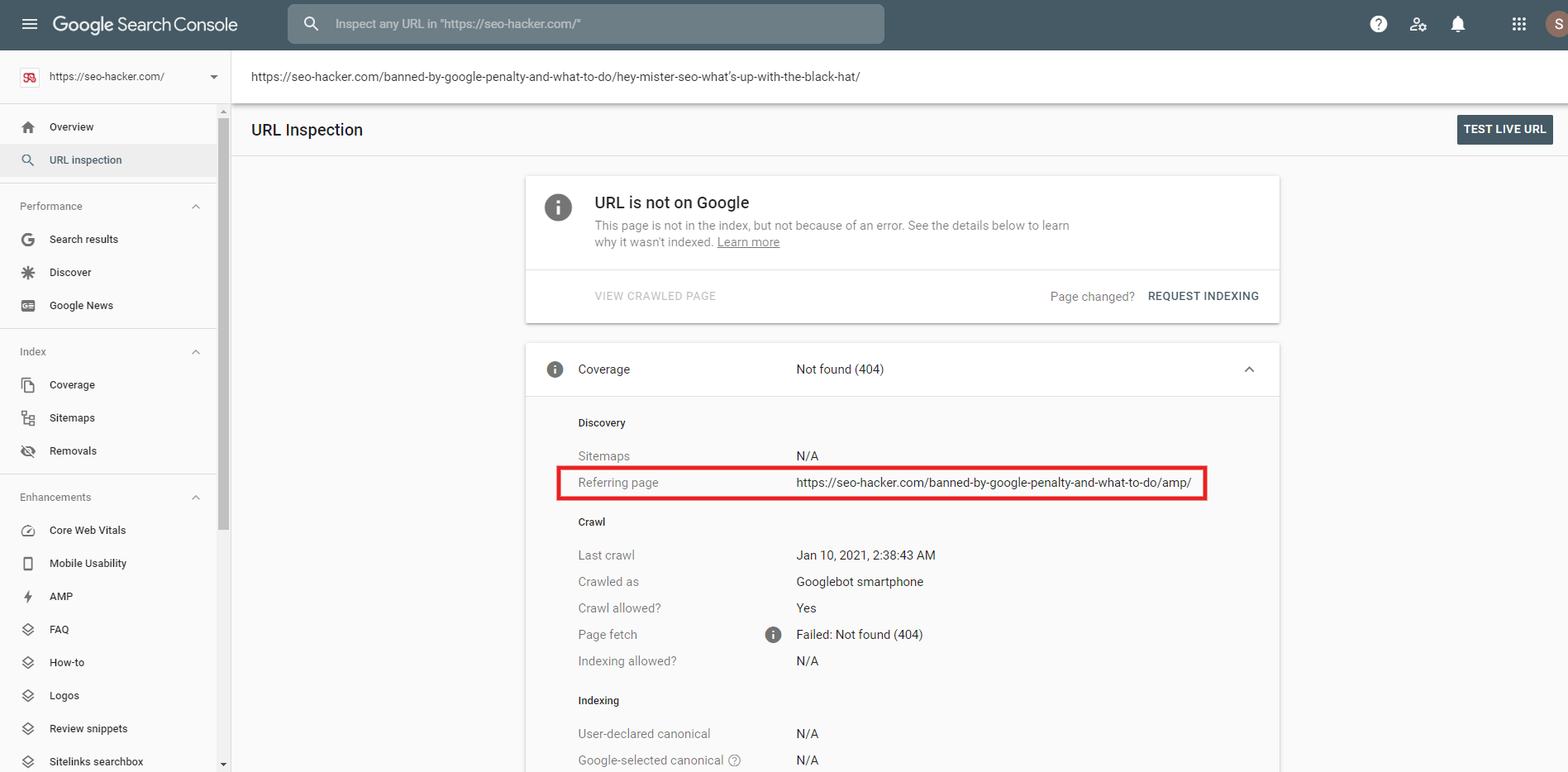
Screaming Frog
In Screaming Frog, initiate a crawl of your website. Once Screaming Frog is done, scroll down the right side menu until you see the “Response Codes” section. Under the section, you should see “Client Error (4xx)” and “Server Error (5xx)”. These reports will show you broken links on your website for both internal and outbound links.
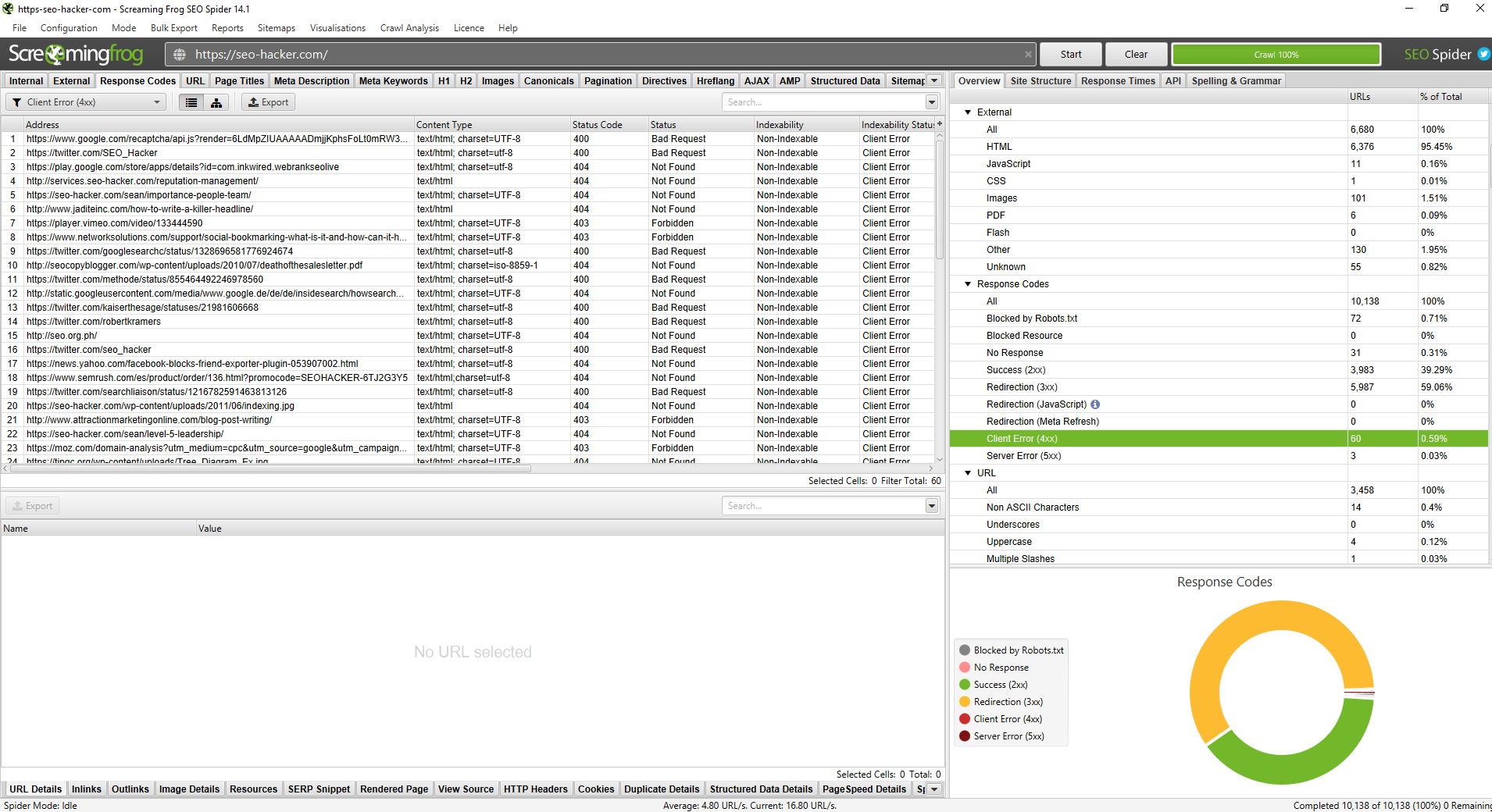
Simply click on them to show the list of broken links. Click on one URL and go to the bottom menu and click on “Inlinks”. This should show you all the pages that have the broken link.
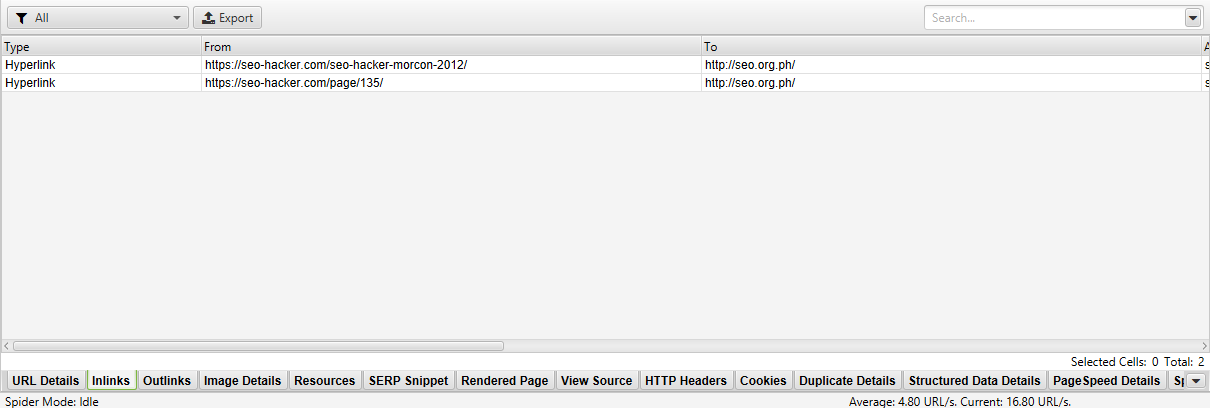
SEMRush Site Audit
Using SEMRush’s Site Audit tool, crawl your website and wait for it to finish. Once the report is ready, go over to the “Issues” tab.
Under the “Issues” tab, you should be seeing different errors for broken links such as:
- # internal links are broken
- # of pages returned 4xx status code
- # pages returned 5xx status code
- # external links are broken
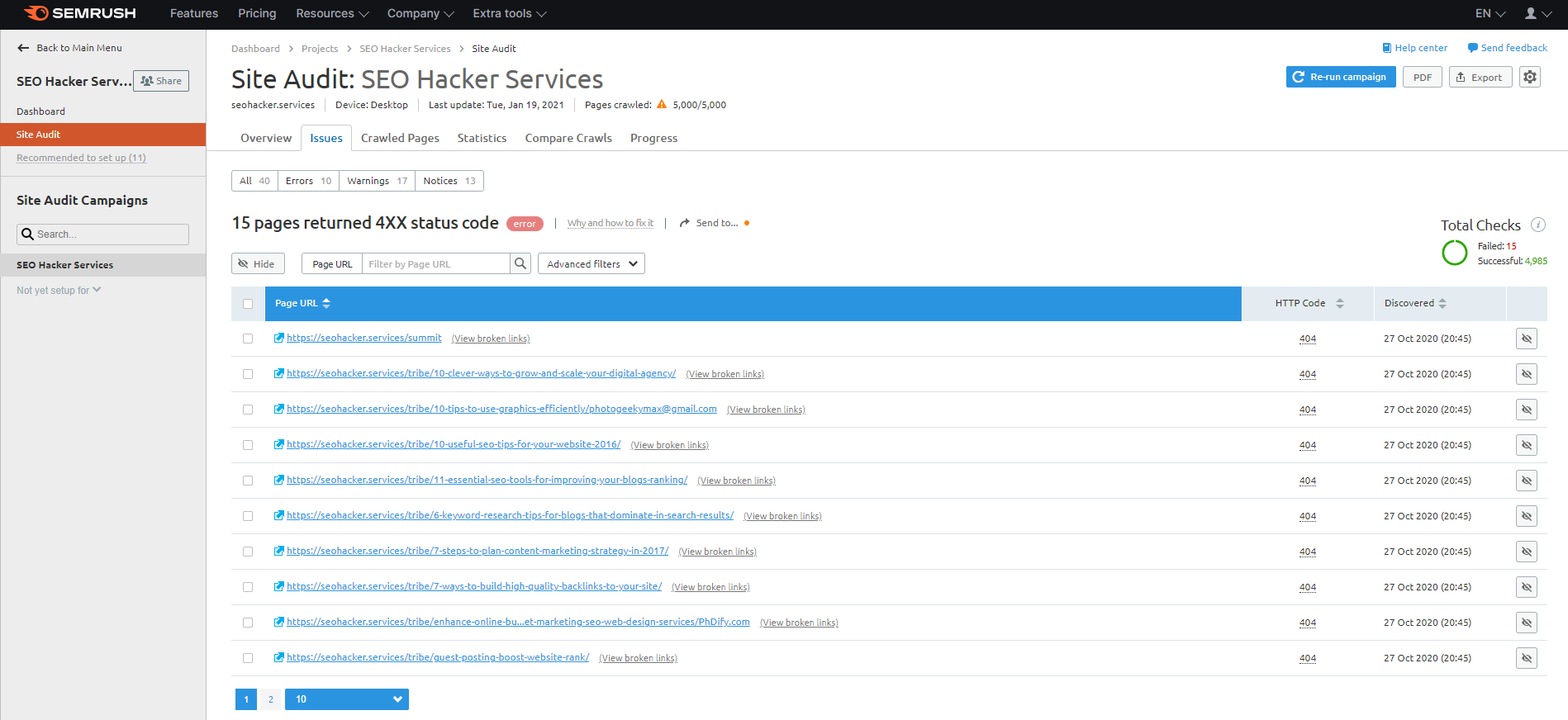
Click on them to view the list of broken links and click on “View Broken Links” beside a link you want to check to see the list of pages linking to that URL.
Best Practices for Fixing Broken Links
By now, you should have a list of all broken links on your website waiting to be fixed. The next step for you to take is to decide how you want to proceed with them. There are a number of factors to consider.
For misspelled URLs – fixing these should be easy. All you have to do is to simply input the right URL you intend to link to and you’re done!
For 4xx internal links – internal links may need some investigation before taking an action. If an internal link is returning a 4xx error, you may want to revisit why that URL is broken.
Did you move it to a different URL? If so, setting up a redirection for that URL should be done.
Is it a product or a service page that you do not offer anymore? Then replacing the link may not be necessary. Removing the link should work just fine.
For 5xx internal links – if this is the case, you may want to check on your server or hosting provider what causes these errors. They may be a part of a larger problem.
For 4xx and 5xx outbound links – usually, this happens when an old source you linked to does not exist anymore or the website might have shut down.
If the website is still up and running, they might have moved the page to a different page. You might want to update the link with the new one. If the source URL does simply not exist anymore, it is at your discretion if you want to link to a different source website or remove the link.
For websites you link to that are experiencing 5xx errors or expired domains, you may want to wait for a few days for them to resolve the issue. Personally, this is too time-consuming and I would prefer to remove the link instead to fix the problem or link to a different source.
Key Takeaway
Finding and fixing broken links on your website can be time-consuming as they could pile up over time. If you do find a bunch of broken links on your website, do remember that they will not have an immediate negative effect on your traffic and rankings. You should also not expect drastic increases in traffic and rankings if you fix them. But still, they are important to fix. In SEO, it doesn’t matter how small or big the opportunity or room for optimization is. Every little thing matters.
